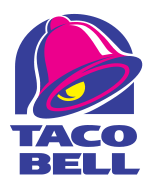Taco Bell
Interested in selling your Taco Bell NNN property or Taco Bell ground lease property and was wondering what you can get for it in today’s changing market?

Number of locations
Revenue and income
Future plans
Corporate vs. franchise
Additional information Taco Bell Properties
In 1962, Taco Bell was founded by Glen Bell in Downey, California.
Named after its founder’s vision of “serving food hot, fast, and at a reasonable price.”
Holds the title of the world’s largest Mexican-inspired fast food chain.
Beloved menu items include Crunchywrap Supremes, Doritos Locos Tacos, and cheesy Fiesta Fries.
Owned by Yum! Brands, Inc., a multinational restaurant company, also houses Pizza Hut and KFC.
Taco Bell History
Taco Bell’s roots trace back to 1962 when Glen Bell, an entrepreneur inspired by Mexican street food, opened the first Taco Bell in Downey, California. Initially serving just tacos for 19 cents, the concept of convenient, affordable Mexican-inspired fare resonated with customers. The name “Taco Bell” was adopted in 1962 to reflect the signature menu item and Glen Bell’s surname.
Throughout the 1950s and 1960s, Taco Bell experienced rapid expansion across the United States, capitalizing on the growing popularity of fast food and its unique value proposition. Innovative product offerings like the crunchy taco, bean burrito, and Cheesy Gordita Crunch became synonymous with the brand.
1978, PepsiCo acquired Taco Bell, further fueling its growth and international expansion. Adopted in 1969, the franchise model played a crucial role in establishing Taco Bell’s presence in markets like Canada, Japan, Australia, China, and Russia.
Today, Taco Bell remains a global leader in the fast-food industry, boasting over 7,000 restaurants worldwide. The chain continues to adapt to changing consumer preferences, introducing new initiatives like mobile ordering, delivery services, and vegetarian and vegan menu options.
Why Invest in Ground Lease and NNN Lease of Taco Bell?
1) Taco Bell NNN Property Investment: Stable income
2) Taco Bell NNN Property Investment: Established tenant
3) Taco Bell NNN Property Investment: Low management responsibility
4) Taco Bell NNN Property Investment: Favorable lease terms
Long-term lease agreements with built-in rent escalations offer predictable income and the potential for rental growth over time.
5) Taco Bell NNN Property Investment: Real estate value
Taco Bell’s strategic locations in high-traffic areas can increase property value, offering potential capital appreciation.
Pros and Cons of Taco Bell Ground Lease and NNN Lease Investment
Pros:
1. Stable income from a well-established brand.
2. Established tenant reduces vacancy and lease default risks.
3. Minimal management responsibility for landlords.
4. Long lease terms provide stability and potential income growth.
Cons:
1. Lease renewal risk when the term expires.
2. Dependency on Taco Bell’s success and operational challenges.
3. Market saturation and competition affect profitability.
4. Limited control over property decisions.
5. Economic and market risks inherent in real estate investments.
Thorough due diligence and consideration of location, lease terms, tenant strength, and investment strategy are essential. Seek guidance from real estate professionals and financial advisors to align with your goals and risk tolerance.

